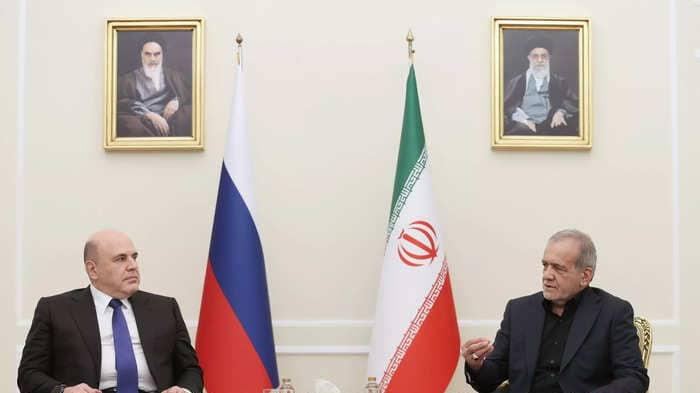
What does Russia want from Israel-Iran escalation
What's the story
Military experts from the Institute for the Study of War (ISW) have suggested that Russia is likely to capitalize on the ongoing conflicts in the Middle East to broaden its own influence.
This assessment comes amidst escalating tensions in the region involving Israel, Iran, and Lebanon-based Hezbollah.
The ISW believes that Russia is using these conflicts to promote its security institutions and establish a robust security architecture.
Diplomatic efforts
Russia's diplomatic moves amid Middle East tensions
The ISW's assessment is supported by recent diplomatic activities involving Russian officials and their Middle Eastern counterparts.
Amidst the escalating conflict, Russia's Deputy Foreign Minister Mikhail Bogdanov expressed strong condemnation of the Israel Defense Forces's ground operation in southern Lebanon.
Additionally, Russian Foreign Minister Sergey Lavrov also met with diplomatic mission heads from unspecified Arab countries, advocating for an immediate cessation of military operations in the Israeli-Palestinian conflict zone.
Positioning strategy
Russia's stance on Middle East conflict
The ISW suggests that these efforts are part of Russia's strategy to integrate these nations into its security sphere.
The Washington Institute for Near East Policy reported in March that Russia was competing with the West by using its defense ties in the Middle East.
They also said that President Vladimir Putin thinks he is in a "existential battle" with the US and that Russia can shape this competition.
Strategic moves
Russia's alleged negotiations and coalition efforts
Last week, Reuters reported that Russian officials met the Houthis in Tehran at least twice this year to negotiate the sale of anti-ship missiles.
Additionally, the Jamestown Foundation, a defense policy think tank, suggests that Russia is attempting to form a working coalition or bloc with Iran, Iraq and Syria by acting as a broker in the Palestinian-Israeli conflict.
These efforts are seen as part of Russia's strategy to regain significant influence over Middle Eastern and Eastern Mediterranean gas sales.